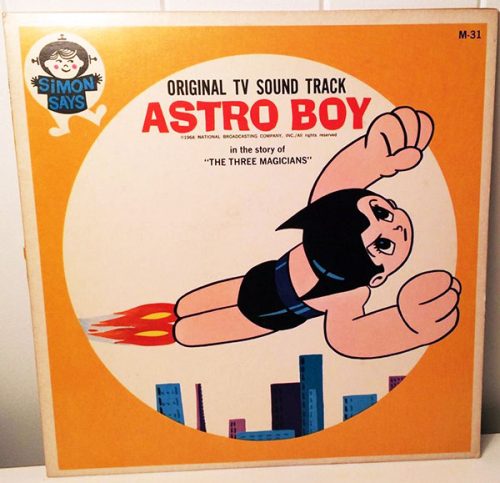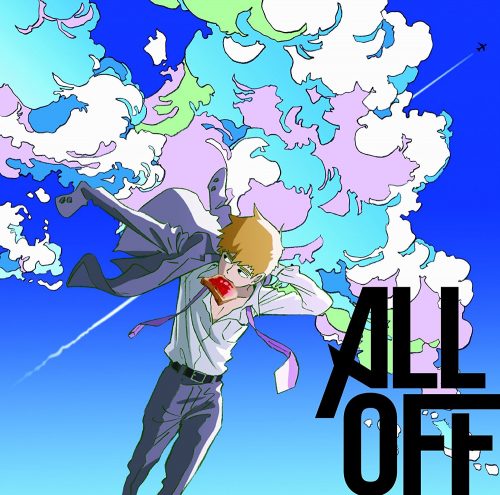
While it certainly isn’t the norm nowadays, there was a period of time from the early 60s to around the mid-2000s where a lot of anime was much more highly localized for countries outside of Japan beyond just translation and/or redubbing. One of the most notable features of this were official English versions of the series’ music, especially the openings. In this short piece, we’ll be exploring a little bit of the history and reasoning behind these localized songs, providing some famous examples, and speculating on why the practice has largely been abandoned.
Atomic Origins - Song Localization Reasoning
The truth is that English OPs have been a part of international anime releases since the beginning, starting with Astro Boy (Tetsuwan Atomu) in 1964 which received an English opening directly adapted from the original Japanese version. Astro Boy was a huge success in America and paved the way for even more anime releases internationally, including more Osamu Tezuka works like Kimba the White Lion (Jungle Taitei). Kimba interestingly received an entirely original English opening song.
Obviously, many more anime would find their way to the U.S. (and elsewhere) but why was the song localization done in the first place? The basic answer is that anime was still new and American TV producers wanted to make their programming as accessible as possible for their audiences. The cultural tensions around World War II might also have made “hiding” the Japanese origin of anime advantageous as there was still a sizeable anti-Japanese sentiment in many parts of the country.
Heyday - 90s Anime Boom
While shows like Astro Boy certainly made a splash in America, anime didn’t really become a big deal until the late 80s-early 90s with movies like Akira leading the way. By the mid-90s anime was nearly mainstream in the U.S. and Canada with super classics like Sailor Moon, Dragon Ball Z, and Pokémon becoming blockbusters. All of these anime also featured English version openings, with Pokémon and Dragon Ball Z’s being wholly original.
It’s interesting to note that anime that were more obviously Japanese like Sailor Moon, Rurouni Kenshin, Tenchi Muyo, and others would often use the Astro Boy method of just changing the lyrics of the original opening while keeping the music intact while more fantastic or kids-targeted shows would be more likely to have completely new music.
Beat Goes On - Decline
Starting in the late 90s, North America would see more and more anime that kept their Japanese opening songs for international broadcast, even if they had English dubs with some examples being Gundam Wing, InuYasha, and Naruto. While there were some late holdouts like School Rumble and Ouran High School Host Club, English-version OPs and EDs have largely disappeared from anime post mid-2000s.
The most likely reason for this is that anime is better understood by international audiences now and there is no longer cultural pressure to hide the medium’s Japanese origins. Many modern fans also prefer watching anime that is as close to the original broadcast as possible, so the added cost of creating English songs doesn’t make sense. That being said, there are still a few shows out there like Pokémon the Series: Sun & Moon that have original English songs for their OP/ED.
Some Oddities with English Anime Songs
One thing that becomes particularly interesting with songs and anime dubbing is how they handle in-universe singing. Various shows have handled this in different ways throughout the years as such as Love Live! keeping their songs all in Japanese, which can be a bit jarring at times, while other series like BECK: Mongolian Chop Squad and The Melancholy of Haruhi Suzumiya have redubbed versions of series’ music using the English cast (although, strangely, the OP/ED remained in Japanese). One especially funny example of handling this is in the Slayers dub where after Lina and Amelia start singing a “magic spell” in English they make a fourth-wall breaking joke where Lina screams “In Japanese!” and then transfer to the Japanese version.
Sometimes the singers from both the English and Japanese versions even end up working together afterward, as was the case with Sharyn Scott and Chisa Yokoyama who sang Tenchi Muyo’s OP “I'm a Pioneer” and other songs in the series. The two performed together as part of Yokoyama’s Los Angeles concert in 1996.
Interestingly, there have been a few modern examples of the artists themselves releasing English versions of anime OP/ED even if they weren’t used in the show itself such as All Off’s Refrain Boy (Mob Psycho 100) and Asaka’s Edelweiss (Centaur no Nayami/A Centaur's Life).
One last oddity we’ll mention is that sometimes even if the OP/ED is ostensibly the same song, the English version will have slightly different instrumentation as with "Smile Bomb" (Yu Yu Hakusho), implying that the music was also re-recorded. This might be due to the original separated instrumental tracks getting lost in the mastering process or simply lack of time which required both tracks to be made around the same time in different locations. In any case, it’s a bit strange but interesting.
Final Thoughts

Like dubs in general, we think that English versions of anime songs, and completely new English-original music, have a lot of potential and can be used quite effectively to bring a production to a wider audience, especially in music-focused shows. There’s also simple fun in the novelty of having multiple versions, even if they’re sometimes a bit questionable, like the famous 4Kids One Piece opening. We’d love to see more studios and publishers experiment with official English versions in the future!
How do you feel about English anime songs? We’d love to hear your thoughts in the comments section below! Until next time, stay tuned to Honey’s for more of all things anime! Until next time, oki=out!
Recommended Post

